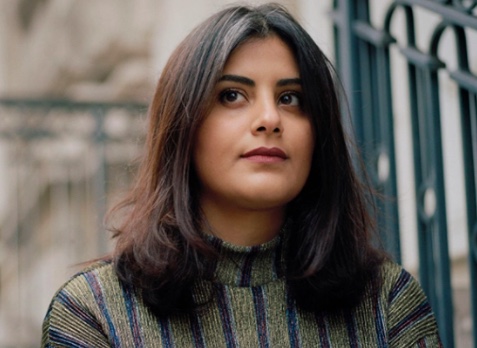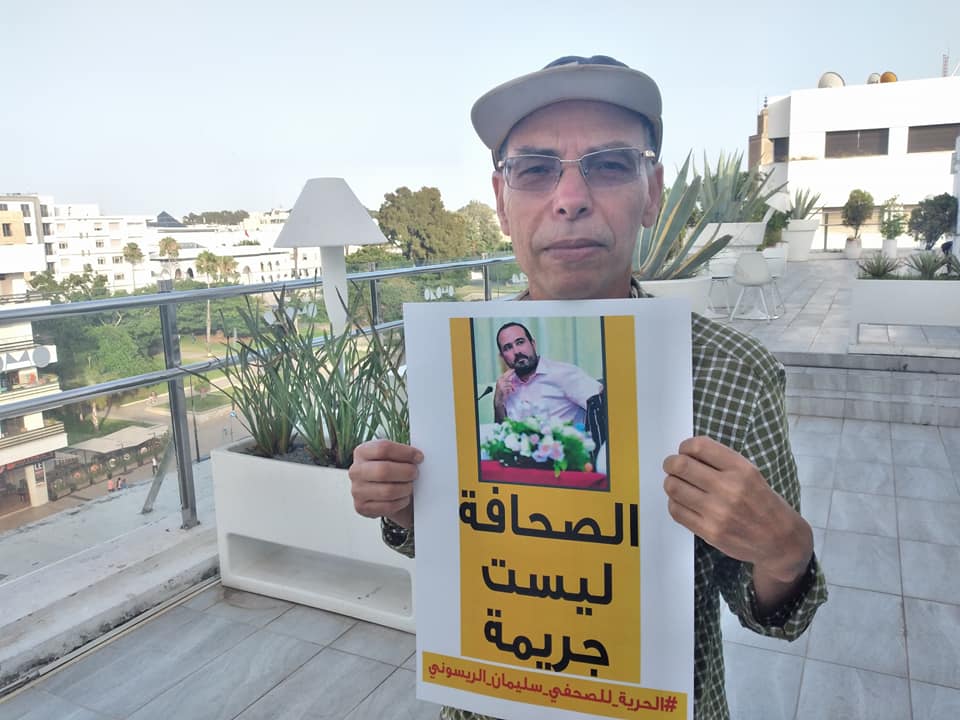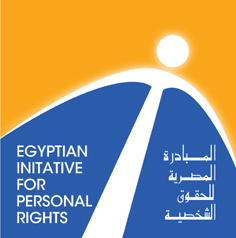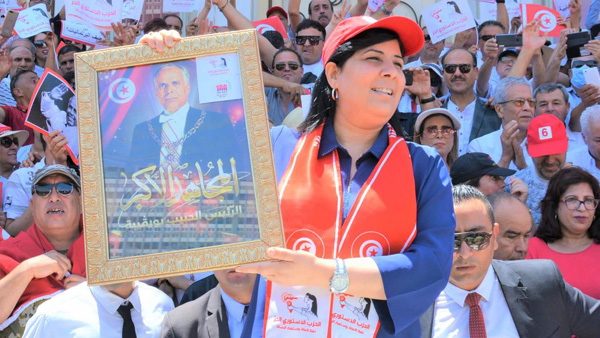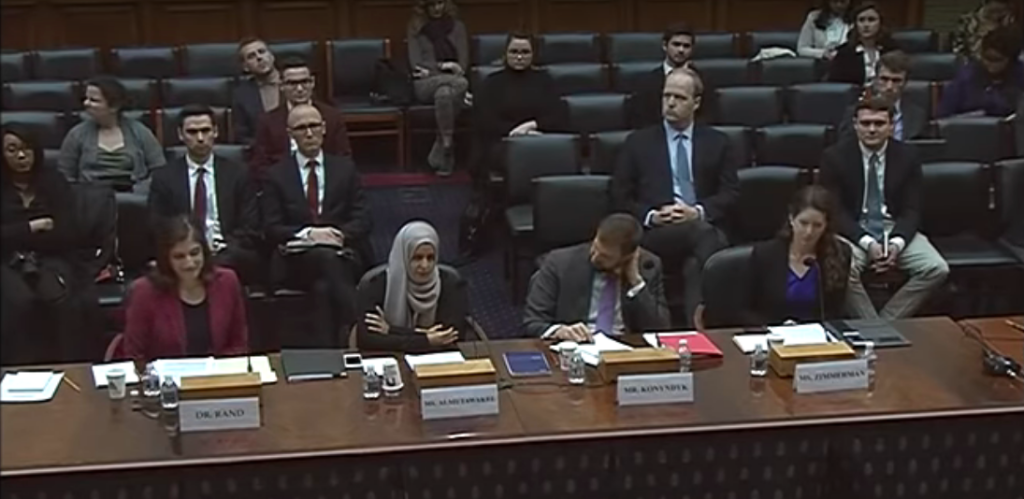


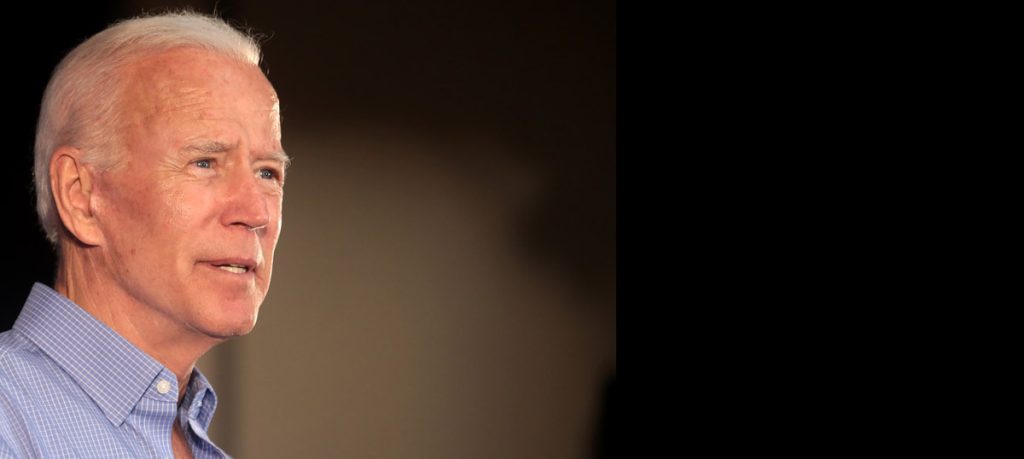
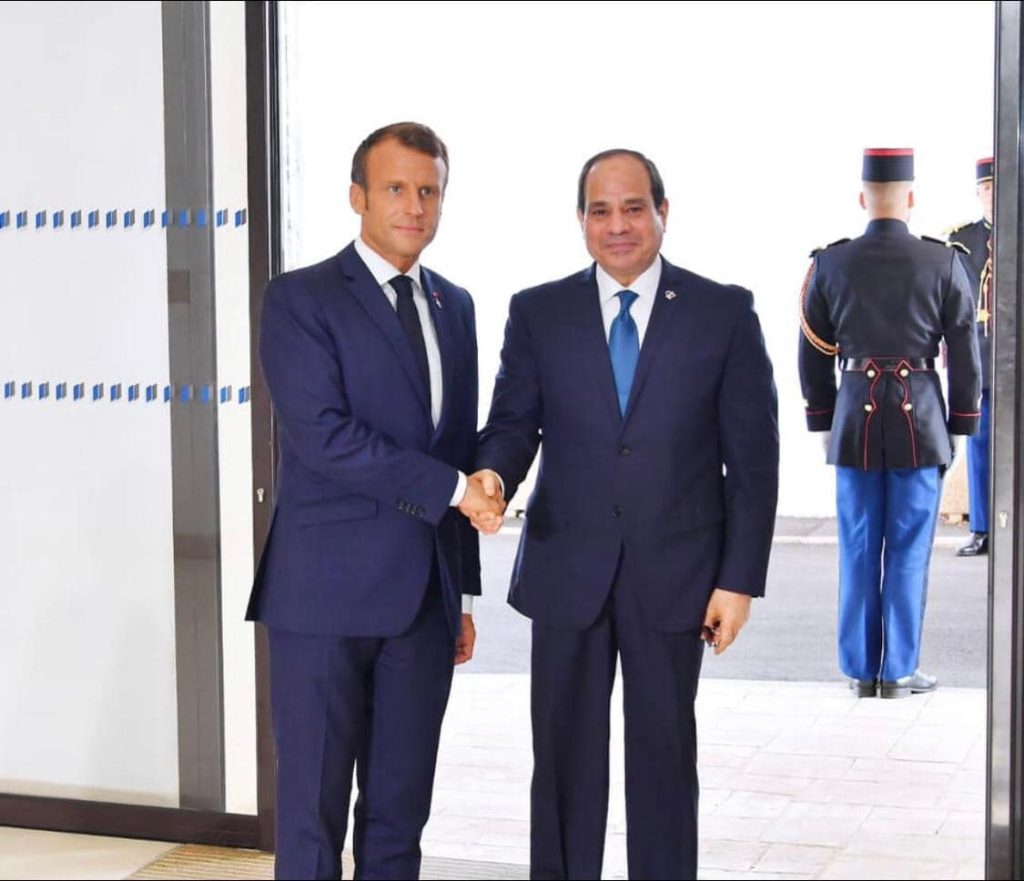
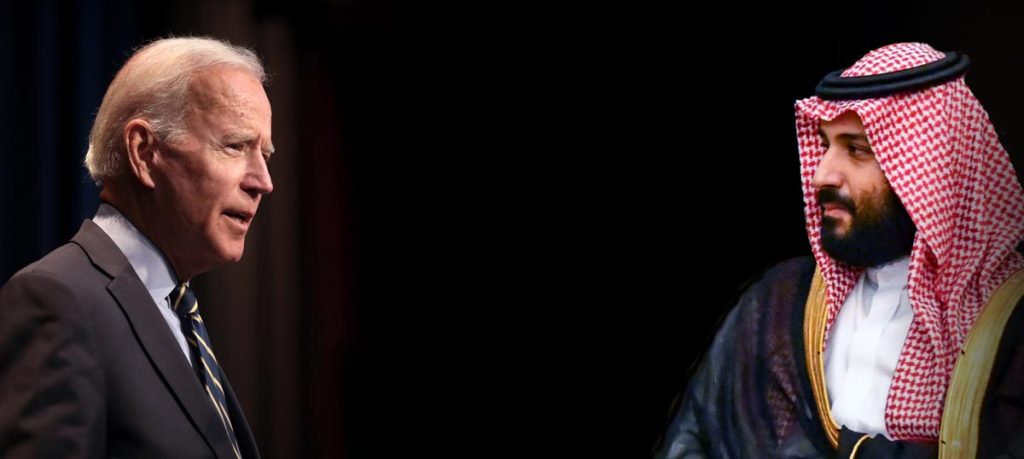
Washington is witnessing a strong push to elevate human rights in U.S. policy toward Saudi Arabia. Most notably, President-elect Joe Biden has said that the United States should “reassess” ties with the kingdom and hold Saudi Arabia accountable for human rights violations.
This POMED conference, which follows the October 2020 conference event “Mohammed bin Salman’s Saudi Arabia: A Critical Look,” convened leading experts to make the case for why the United States should prioritize promoting human rights and countering authoritarianism in its relations with Saudi Arabia; on what issues the Biden administration should focus; and how the U.S. government, civil society, and private sector can stand up against Saudi repression.
Read the full event transcript here.
Read the event highlights here.
To view a recording of the full event, watch the recording on Facebook, Twitter, or on YouTube below:
10:00 am – 11:00 am ET
Panelists:
Moderator:
11:00 am – 12:00 pm ET
Panelists:
Moderator:
12:00 pm – 12:30 pm ET
A conversation with:
Panel 1
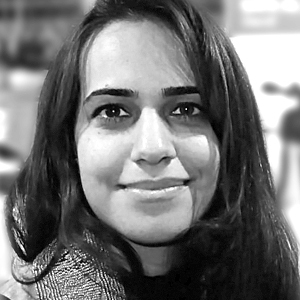 Safa Al Ahmad is the acting director of ALQST. She is a Saudi journalist and filmmaker who has directed documentaries for PBS and the BBC. She is the winner of the 2015 Index on Censorship Freedom of Expression Award for Journalism, the El Mundo award for journalism for her body of work in 2015, the 2015 Canadian Journalists for Free Expression (CJFE) International Press Freedom Award and the Association of International Broadcasting (AIB) Best International Investigation for her film Saudi’s Secret Uprising in 2014. Her documentary ‘Yemen Under Siege’ won two News and Documentary Emmys. Read her full bio here.
Safa Al Ahmad is the acting director of ALQST. She is a Saudi journalist and filmmaker who has directed documentaries for PBS and the BBC. She is the winner of the 2015 Index on Censorship Freedom of Expression Award for Journalism, the El Mundo award for journalism for her body of work in 2015, the 2015 Canadian Journalists for Free Expression (CJFE) International Press Freedom Award and the Association of International Broadcasting (AIB) Best International Investigation for her film Saudi’s Secret Uprising in 2014. Her documentary ‘Yemen Under Siege’ won two News and Documentary Emmys. Read her full bio here.
 Aaron David Miller is a senior fellow at the Carnegie Endowment for International Peace and a global affairs analyst for CNN. Previously, he served at the State Department, where he helped formulate U.S. policy on the Middle East and the Arab-Israel peace process. He also formerly served as resident scholar at the Georgetown Center for Strategic and International Studies and director of the Middle East program at the Woodrow Wilson International Center for Scholars. He has written five books, including his most recent, The End of Greatness: Why America Can’t Have (and Doesn’t Want) Another Great President (Palgrave, 2014). Read his full bio here.
Aaron David Miller is a senior fellow at the Carnegie Endowment for International Peace and a global affairs analyst for CNN. Previously, he served at the State Department, where he helped formulate U.S. policy on the Middle East and the Arab-Israel peace process. He also formerly served as resident scholar at the Georgetown Center for Strategic and International Studies and director of the Middle East program at the Woodrow Wilson International Center for Scholars. He has written five books, including his most recent, The End of Greatness: Why America Can’t Have (and Doesn’t Want) Another Great President (Palgrave, 2014). Read his full bio here.
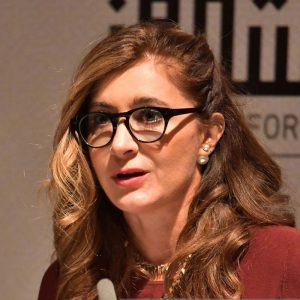 Sarah Leah Whitson is the executive director of Democracy for the Arab World Now (DAWN). She served as executive director of Human Rights Watch’s Middle East and North Africa division from 2004 to 2020, overseeing the work of the division in 19 countries, with staff located in 10 countries. She led dozens of advocacy and investigative missions throughout the region, focusing on issues of armed conflict, accountability, legal reform, migrant workers, and human rights. Whitson is a member of the Council on Foreign Relations and is on the boards of the Artistic Freedom Initiative, Freedom Forward, and ALQST. Read her full bio here.
Sarah Leah Whitson is the executive director of Democracy for the Arab World Now (DAWN). She served as executive director of Human Rights Watch’s Middle East and North Africa division from 2004 to 2020, overseeing the work of the division in 19 countries, with staff located in 10 countries. She led dozens of advocacy and investigative missions throughout the region, focusing on issues of armed conflict, accountability, legal reform, migrant workers, and human rights. Whitson is a member of the Council on Foreign Relations and is on the boards of the Artistic Freedom Initiative, Freedom Forward, and ALQST. Read her full bio here.
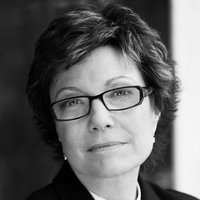
Deborah Amos (moderator) covers the Middle East for NPR News. Her reports can be heard on NPR’s award-winning Morning Edition, All Things Considered, and Weekend Edition. She has reported overseas as the London bureau chief and as a foreign correspondent based in Amman, Jordan. In 2010, Amos was awarded the Edward R. Murrow Lifetime Achievement Award by Washington State University. She was part of a team of reporters who won a 2004 Alfred I. duPont-Columbia University Award for coverage of Iraq. Amos is also the author of Eclipse of the Sunnis: Power, Exile, and Upheaval in the Middle East (Public Affairs, 2010) and Lines in the Sand: Desert Storm and the Remaking of the Arab World (Simon and Schuster, 1992). Amos is a Ferris Professor at Princeton, where she teaches migration reporting. Read her full bio here.
Panel 2
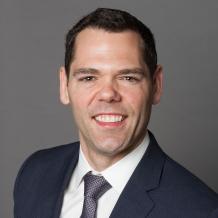 Rob Berschinski is the senior vice president of policy at Human Rights First. Previously, he served in the Obama Administration as Deputy Assistant Secretary of State for Democracy, Human Rights, and Labor. He also served under Ambassador Samantha Power as Deputy Director of the U.S. Mission to the United Nations’ office in Washington, D.C.; special assistant to then-Deputy Secretary of Defense Ash Carter; and spent three years as Director for Security and Human Rights Policy at the White House National Security Council. From 2008 to 2010 he served on the staff of the Undersecretary of Defense for Policy as a Presidential Management Fellow, and worked as a defense fellow on the professional staff of the Senate Appropriations Defense Subcommittee. He began his career as an intelligence officer in the U.S. Air Force and is an Iraq War veteran. Read his full bio here.
Rob Berschinski is the senior vice president of policy at Human Rights First. Previously, he served in the Obama Administration as Deputy Assistant Secretary of State for Democracy, Human Rights, and Labor. He also served under Ambassador Samantha Power as Deputy Director of the U.S. Mission to the United Nations’ office in Washington, D.C.; special assistant to then-Deputy Secretary of Defense Ash Carter; and spent three years as Director for Security and Human Rights Policy at the White House National Security Council. From 2008 to 2010 he served on the staff of the Undersecretary of Defense for Policy as a Presidential Management Fellow, and worked as a defense fellow on the professional staff of the Senate Appropriations Defense Subcommittee. He began his career as an intelligence officer in the U.S. Air Force and is an Iraq War veteran. Read his full bio here.
 Stephen McInerney is the executive director of the Project on Middle East Democracy (POMED). Prior to joining POMED in 2007, he had spent six years living, working, and studying in the Middle East and North Africa—two years each in Egypt, Lebanon, and Qatar. He spent two years in a master’s degree program in the Center for Arab and Middle Eastern Studies at the American University of Beirut, one year on a fellowship at the Center for Arab Study Abroad (CASA) at the American University in Cairo, and three years teaching at Cairo American College and the American School of Doha. He received a Master’s degree from Stanford University and is fluent in Arabic. Read his full bio here.
Stephen McInerney is the executive director of the Project on Middle East Democracy (POMED). Prior to joining POMED in 2007, he had spent six years living, working, and studying in the Middle East and North Africa—two years each in Egypt, Lebanon, and Qatar. He spent two years in a master’s degree program in the Center for Arab and Middle Eastern Studies at the American University of Beirut, one year on a fellowship at the Center for Arab Study Abroad (CASA) at the American University in Cairo, and three years teaching at Cairo American College and the American School of Doha. He received a Master’s degree from Stanford University and is fluent in Arabic. Read his full bio here.

Annie Shiel is the senior advisor for U.S. policy and advocacy with the Center for Civilians in Conflict (CIVIC)’s U.S. Program, where she conducts policy research and advocacy around the civilian harm implications of U.S. military operations and security sector assistance. She is also a research program manager with Stanford University, where she leads research on the second- and third-order effects of conflict on civilians. Prior to working with CIVIC and Stanford, Annie spent three years at the State Department, where she worked on human rights, civilian protection, and security sector reform as a founding member of the Bureau of Democracy, Human Rights and Labor’s Office of Security and Human Rights. Read her full bio here.
 Tamara Cofman Wittes (moderator) is a senior fellow in the Center for Middle East Policy at Brookings, where she focuses on U.S. policy in the Middle East. Previously, Wittes served as deputy assistant secretary of state for Near Eastern affairs from November of 2009 to January 2012, coordinating U.S. policy on democracy and human rights in the Middle East during the Arab uprisings. She also previously served as a Middle East specialist at the U.S. Institute of Peace and director of programs at the Middle East Institute in Washington. Wittes is the author of Freedom’s Unsteady March: America’s Role in Building Arab Democracy (Brookings Institution Press, 2008). She is a founder of the Leadership Council for Women in National Security. Read her full bio here.
Tamara Cofman Wittes (moderator) is a senior fellow in the Center for Middle East Policy at Brookings, where she focuses on U.S. policy in the Middle East. Previously, Wittes served as deputy assistant secretary of state for Near Eastern affairs from November of 2009 to January 2012, coordinating U.S. policy on democracy and human rights in the Middle East during the Arab uprisings. She also previously served as a Middle East specialist at the U.S. Institute of Peace and director of programs at the Middle East Institute in Washington. Wittes is the author of Freedom’s Unsteady March: America’s Role in Building Arab Democracy (Brookings Institution Press, 2008). She is a founder of the Leadership Council for Women in National Security. Read her full bio here.
Fireside Chat
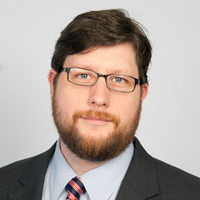 Matt Duss is the foreign policy advisor to Senator Bernie Sanders. He served as an advisor to the Bernie Sanders 2020 presidential campaign and from 2014 to 2017 was the president of the Foundation for Middle East Peace. He also previously worked as a senior policy analyst at the Center for American Progress and director of the Center’s Middle East Progress program, where he focused on the Middle East and U.S. national security. Read his full bio here.
Matt Duss is the foreign policy advisor to Senator Bernie Sanders. He served as an advisor to the Bernie Sanders 2020 presidential campaign and from 2014 to 2017 was the president of the Foundation for Middle East Peace. He also previously worked as a senior policy analyst at the Center for American Progress and director of the Center’s Middle East Progress program, where he focused on the Middle East and U.S. national security. Read his full bio here.
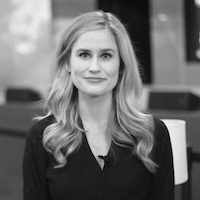 Elizabeth Hagedorn is a correspondent based in Washington for Al-Monitor covering Middle East policymaking and breaking news. She previously reported on the region as a freelance journalist in Turkey and Iraq with a focus on migration and human rights. Her work has appeared in publications including Middle East Eye, the National, the Guardian, Public Radio International, and the Defense Post. Read her full bio here.
Elizabeth Hagedorn is a correspondent based in Washington for Al-Monitor covering Middle East policymaking and breaking news. She previously reported on the region as a freelance journalist in Turkey and Iraq with a focus on migration and human rights. Her work has appeared in publications including Middle East Eye, the National, the Guardian, Public Radio International, and the Defense Post. Read her full bio here.
Photo Credit: Graphic made from image of Joe Biden by Gage Skidmore and image of Mohammed bin Salman by Ron Przysucha.

